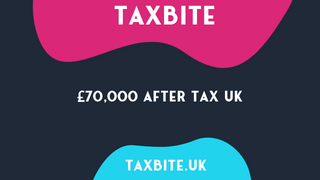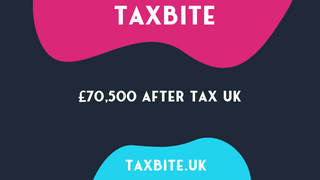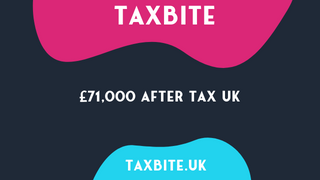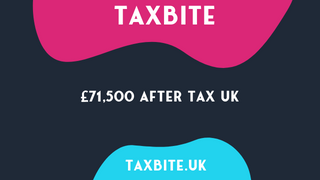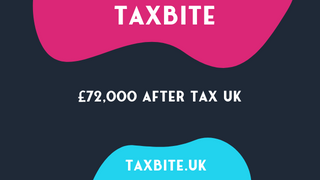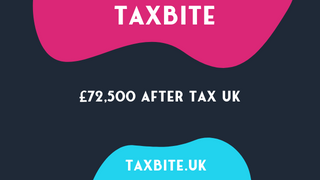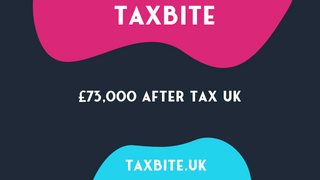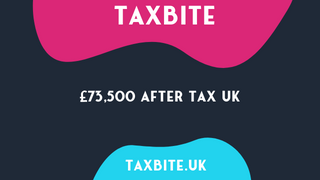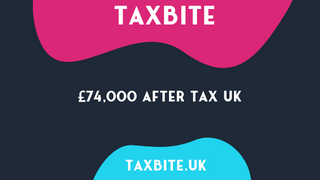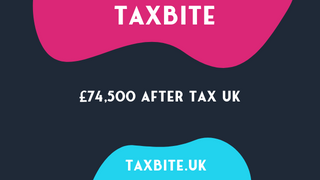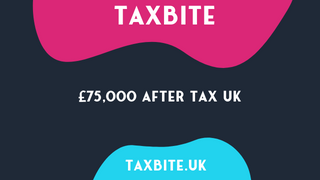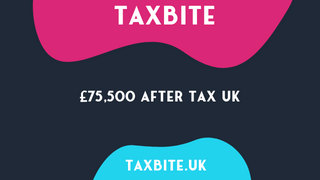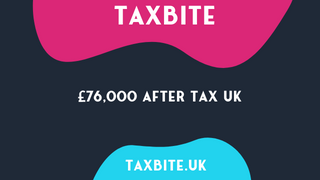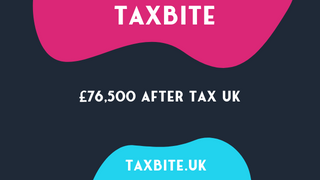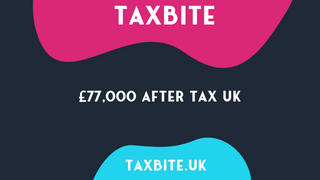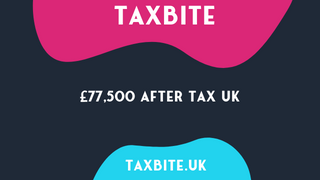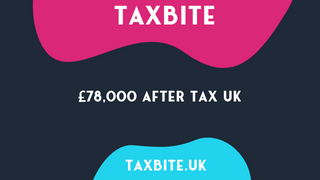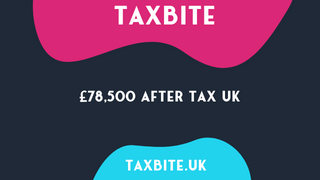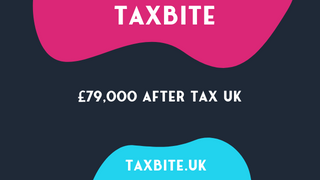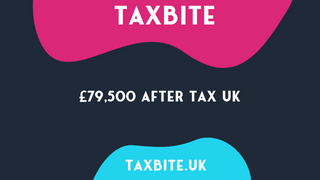Understanding income tax in the UK is essential for financial planning. Income tax is a significant source of revenue for the government, and it is imperative to grasp the concepts of this type of taxation.
In the UK, income tax rates and bands vary depending on the amount of income earned. For the 2021-2022 tax year, the standard personal allowance is £12,570. The basic rate of income tax is 20%, which is applied to income up to £37,700. The higher rate of income tax is 40% and is applied to income between £37,701 and £150,000. Finally, the additional rate of income tax is 45% and is applied to income above £150,001. There are also exceptions and tax relief available for certain situations.
With this information, we can better understand how our income is taxed and what our take-home pay will be. For example, a projected take-home pay of £73,500 after tax in 2023 would depend on the individual’s income and tax situation.
Income tax is a type of tax that applies to money gained from different sources. The government collects this tax annually to pay for services like healthcare, education, and infrastructure. People in the UK need to understand how income tax works – it affects their wages and the economy.
Taxes in the UK depend on the amount of money made. Rates range from 0% for low incomes to 45% for higher ones. The higher earners usually pay more. Taxpayers get a personal allowance, so they can earn some money without paying tax. However, various factors like employment benefits and pension contributions can affect tax liability. It helps to understand the rates and bands.
To work out the net pay, with all taxes and allowances taken into account, people can use tools like tax calculators or consult a financial advisor. Knowing this information helps them make wise decisions with their money and reduce their tax burden with legal means such as adjusting salary contributions, participating in salary sacrifice schemes, or applying for credits from HMRC.
Income tax is a vital part of the financial system in the UK. Different rates and bands decide how much tax people pay, based on their income level. The government reviews these rates and bands each year, potentially changing the taxes owed.
We’ve made a table to illustrate the current rates and bands for taxpayers in England, Wales, and Northern Ireland. This includes the Personal Allowance, Basic Rate, Higher Rate, and Additional Rate. These rates apply to taxable income earned in the 2021/22 tax year.
| Tax Band | Taxable Income | Tax Rate |
|---|---|---|
| Personal Allowance | Up to £12,570 | 0% |
| Basic Rate | £12,571 to £50,270 | 20% |
| Higher Rate | £50,271 to £150,000 | 40% |
| Additional Rate | Over £150,000 | 45% |
Tax rates depend on the income earned. Folks with higher incomes pay more in taxes than those with lower wages. Other factors matter too. Married people can get transferable allowances from their partners. Pensioners get more allowances than younger adults. Also, extra allowances apply if you are disabled.
It’s important to know the income tax rates and bands. That way, you’ll know the amount of tax you owe. You’ll be able to plan your finances better.
In the UK, understanding income tax is essential for managing personal finances. Government tools, like tax relief and exemptions, offer taxpayers financial benefits. These include tax relief when donating to charities or making pension contributions. Plus, blind people, those with disabilities, and married couples may be eligible for special allowances.
Tax relief helps manage finances better. Pension contributions relief reduces taxable income and increases retirement funds. Gift Aid gives taxpayers extra money from the government when they donate to charities.
Maximizing take-home pay and being financially responsible involves knowing tax relief and exception options. For example, deductions like medical costs or childcare fees can reduce taxable income. Before making changes to personal finance, it’s best to consult an advisor for compliance and to avoid penalties.
Calculating after-tax income can be challenging, but this piece will break down how the figure of £73,500 after tax in 2023 is calculated. The variables that contribute to this figure include the gross annual salary, personal allowance, taxable income, and national insurance and tax liabilities. Understanding these components is essential for determining your take-home pay.
For calculating income tax, it is important to determine the gross hourly rate and weekly working hours. The gross hourly rate is the amount earned per hour before deductions. Weekly working hours shows how many hours worked per week. These two factors are crucial for net income calculations.
We can make a table with information from a reference data. The table will have four columns: Gross Hourly Rate, Weekly Working Hours, Total Annual Income, and Taxable Amount.
An example: A person earning a £35 gross hourly rate with 40 hours of weekly working hours will have a total annual income of £72,800. After taking into account personal allowances and calculating taxable amounts based on tax rates and bands, their net income will be £52,180.
Other factors like pension contributions or salary sacrifice schemes can affect the final figures. Also, tax rates and bands can change due to government policies.
Income tax has a long history. It was first imposed in the 13th century, and in Britain it started in the late 18th century. In the early 20th century, it was used to finance wars. UK tax laws have changed many times, with several amendments to provide relief to different income brackets.
To get the info on income tax rates and bands for 2021/22, check out the table. It’s got the different tax rates and Personal Allowances for each band.
Remember, your Personal Allowance and taxable amount can change depending on your situation. To work out your Taxable Amount, subtract your Personal Allowance from your total earned income. Then tax will be paid at the rate mentioned in that band.
If you make more than £100k, your Personal Allowance decreases until it hits zero at £125k.
For the best results, get advice or use online tax calculators. Consider National Insurance Contributions and Pension Contributions too.
When it comes to taxes in the UK, National Insurance is a major factor. This is a mandatory payment for employees and employers towards social security benefits. The amount owed is calculated using rates and limits set by the government.
In 2021/22, employees pay 12% of their income between £9,568-£50,270. Plus, 2% on anything above that threshold. Employers must contribute an extra 13.8%.
Certain classes of workers or those who earn below a certain threshold can be exempt. Self-employed people pay a different rate on their profits and have different allowances compared to traditional employees.
National Insurance payments are important when calculating take-home pay in the UK. Tax calculators can help make sense of it. Do your due diligence to make informed decisions.
Calculating tax liability and net income can feel like a trip to the dentist: as painful as it is necessary.
Total tax liability and net income are important for anyone earning money. Total tax liability is the amount of tax owed to the government. Net income is the money one takes home after deductions.
To calculate, for an individual earning £73,500 before tax in 2023, a table may help. It shows deductions, allowances, gross yearly income, personal allowance, taxable amount, national insurance, and more.
Tax liabilities can be reduced by making pension contributions, salary sacrifice schemes, and tax credits.
Net income is what an employee gets after deductions. This varies depending on personal situations, e.g. marital status, national insurance payments.
Total tax liabilities and net income can be understood by taking all of these factors into account. This knowledge is helpful for financial planning and disposable income.
Are you wondering how much you’ll take home after taxes in 2023? Look no further! In this section, we’ll explore how tax calculators can help you determine your take-home pay accurately. We’ll take a closer look at two popular calculators: the Reed.co.uk Tax Calculator and the Key Business Consultants UK Salary Income Tax Calculator, to help you navigate the complex world of UK taxes. According to factual data, these two calculators are highly recommended by tax experts because they incorporate all the updated tax rates, national insurance contributions, and deductions for different income brackets. With these tools at your disposal, you can better plan your finances and make informed decisions about your future.
The Reed.co.uk Tax Calculator is a must for UK taxpayers! It’s user-friendly and lets you factor in different payment frequencies. You can calculate weekly, monthly or yearly. Plus, it’s easy to access with an internet connection.
The table shows what the calculator calculates. It includes Gross Salary, Personal Allowance, Taxable Income, Income Tax, National Insurance, Total Deductions and Net Income.
In conclusion, the Reed.co.uk Tax Calculator is great for those who want to take control of their financial affairs. It has accurate calculations and an easy-to-use interface. Plus, it’s like having your own personal accountant without the high fees.
The Key Business Consultants UK Salary Income Tax Calculator is essential for anyone wanting to accurately work out their net income after taxes. This calculator considers the UK’s tax system, including various rates and bands for varying earnings, as well as exemptions and relief options.
HTML tags like <table>, <td>, and <tr> can be used to generate a table that shows results from the calculator. The columns could be:
| Gross Annual Income | Personal Allowance | Taxable Amount | National Insurance Payment | Total Tax Liability | Net Income after Taxes |
|---|---|---|---|---|---|
| … | … | … | … | … | … |
Besides calculating take-home pay, this tax calculator also takes into account other factors that affect finances, such as bonuses, regular contributions to pensions or other investments, and specific adjustments that may change net income.
In conclusion, the Key Business Consultants UK Salary Income Tax Calculator is a useful tool for individuals to plan their finances better. Taking advantage of the UK’s income tax calculations plus maximizing opportunities for contributions and adjustments that lower total taxable amounts, users can increase their take-home pay.
Looking to maximize your take-home pay in 2023? This section explores how you can do just that through careful contributions and adjustments. From pension contributions to salary sacrifice schemes, tax credits and other adjustments, we’ll delve into the various sub-sections that can help you make the most of your income. So, if you’re ready to boost your earnings and take your finances to new heights, read on!
Maximizing take-home pay? Pension contributions are key! By contributing to your pension scheme, you invest in the future and reduce your taxes. The government encourages citizens to save for retirement by giving tax relief on qualifying pensions.
Most companies offer their employees a workplace pension scheme, where the employer contributes too. This is usually a percentage of the employee’s gross salary. Alternatives to this are SIPPs and stakeholder pensions, which provide flexibility and control over investment choices.
Be aware of the annual allowance limit (£40,000 per annum). Too much contribution could lead to extra tax charges. If you didn’t use all your allowance in the past three years, you can carry it forward.
In short: make regular pension contributions. This not only secures your financial future but also reduces your total tax liability. It’s essential to know the annual allowance, and consider employer contributions and investment choices when selecting a pension scheme.
Salary sacrifice schemes are fantastic! They can help employees to get more take-home pay. This is a voluntary thing. Employees give away a bit of their salary for non-cash things, like pension contributions. This lowers their tax bill, but they still get nice benefits. Both the employer and employee must agree to this scheme for it to work.
Pension contributions are really popular. Employees put some of their pre-tax earnings into a pension fund. This increases their disposable income. Other options are: cycle-to-work programs, childcare vouchers, and digital goods like mobile phone contracts. It’s important to understand how each scheme works before you decide.
Employers can also benefit. Salary sacrifice schemes reduce national insurance contributions. This is a great way for employers to save money, while still giving their employees nice benefits. So, if you want more take-home pay, think about salary sacrifice schemes and see if they’re right for you.
Tax credits are a type of financial help given by the government. They help people with low incomes, families with children and people with disabilities by giving extra money and lowering the overall tax you have to pay. This varies depending on your income and how many dependents you have.
There are two main categories of tax credits. Working Tax Credit (WTC) is for people who work but earn a low wage. There is a disability element for those with health issues. Child Tax Credit (CTC) helps families with children by covering costs.
For people with low incomes, there are also other kinds of tax credits available including Pension Credit and Universal Credit which provide extra support for older people and those with money problems.
It’s important to check if you can get tax credits. Changes in your life can affect how much you get. You must renew your tax credits each year. If you don’t, payments will stop. Tax credits can be a great help if you need money.
To get more take-home pay, adjustments to income can be made. Pension contributions, salary sacrifice schemes, and tax credits can be claimed. Charitable donations can be deducted from a tax return. Business expenses can also be deductible. All these adjustments mean lower taxable income.
Therefore, it’s important to keep all receipts & documentation for any expenses planned to be claimed as deductions. It’s also advisable to consult a tax expert or accountant. Missing out on potential savings? Plan ahead and be proactive about taxes. Maximize take-home pay and minimize tax liabilities. Explore other adjustments that can be made.
‘
If you earn £73,500 per year, you will take home £4,243 every month after deducting £1,403 for tax and £479 for national insurance.
If you earn £73,500 per year, your marginal tax rate is 43.3%, which means any additional income will be taxed at this rate.
If you earn £73,500 per year in the UK, you will be taxed £22,579, with an average tax rate of 30.7%.
A £1,000 bonus will generate an extra £568 of net income, while a £5,000 bonus will generate an extra £2,838 of net income if you earn £73,500 per year.
Yes, you can adjust your income in the tax calculator to include student loan or pension contributions.
The gross income information includes different job categories such as accounting, administrative, advertising, agriculture, architecture, arts, banking, computer, construction, consulting, customer service, education, energy, engineering, facilities, finance, food service, healthcare, hospitality, human resources, insurance, IT, law enforcement, legal, loans, logistics, management, manufacturing, marketing, mechanical, pharmaceutical, PR, publishing, real estate, restaurant, retail, sales, scientific, security, social care, telecommunications, training, transportation, travel, and volunteering.
Here’s a list of similar salaries:
